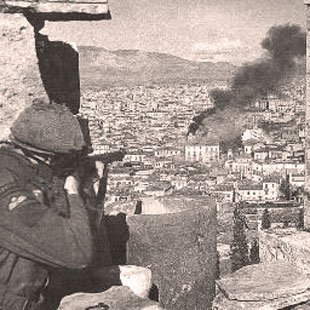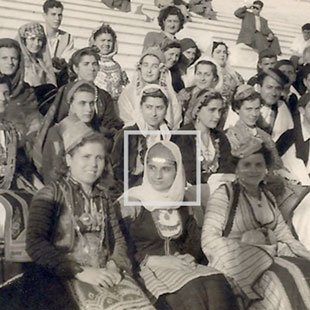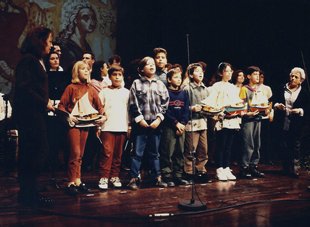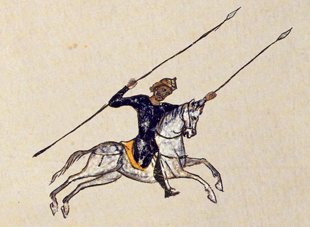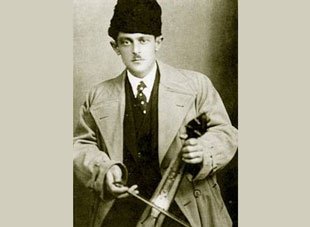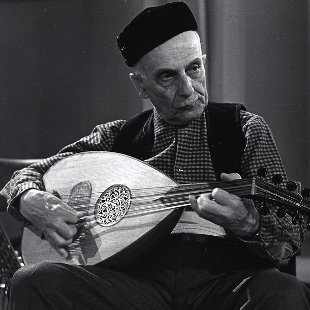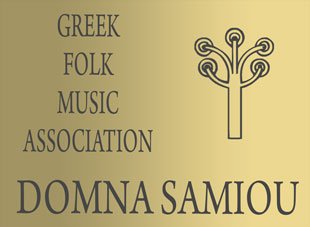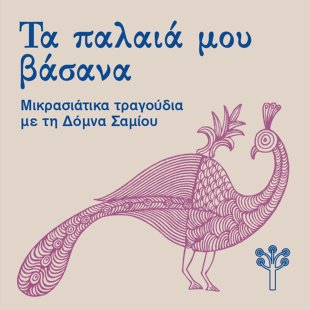You are at: Home page Her Work List of Songs Mother, spring is here
Μάνα μ’ ήρτεν η άνοιξη
Listen
Lyrics
Mother, spring is here, full summer
A thousand workers they came out,
Out they came, they need a thousand hands.
Work, dear stranger, work,
Work, dear stranger, work and I will marry you.
The stranger’s working, he’s working again,
Working so he can get back home.
Come night he saddles the horse.
Translated by Michael Eleftheriou
Original Lyrics
Μάνα μ,’ ήρτεν η άνοιξη
- Μάνα μ’, ήρτεν η άνοιξη, το γέρ’μο1 καλοκαίρι,
ξέβγαν2 τα χί- κι αμάν, αμάν- ξέβγαν τα χίλια τ’ άργατα3,
ξέβγαν τα χίλια τ’ άργατα, τα θέλουν χίλια χέρια.
- Δούλεψε, ξέ- κι αμάν, αμάν- δούλεψε, ξένε, δούλεψε,
δούλεψε, ξένε, δούλεψε κι εγώ να σε παντρέψω.
Πάλιν ο ξέ- κι αμάν, αμάν- πάλιν ο ξένος δούλευε,
πάλιν ο ξένος δούλευε στον τόπο του να πάει.
Νύχτα σελώ- κι αμάν, αμάν- νύχτα σελώνει τ’ άλογο
4[νύχτα σελώνει τ’ άλογο, μέρα το καλιγώνει,
βάζ’ ασημένια πέταλα, καρφιά μαλαγματένια
και τα καλιγοσοίνια5 του όλ’ από τζεβαέρι6…]
1 Γέρ’μο: έρημο, ρημάδι.
2 Ξέβγαν: βγήκαν, ξεπρόβαλαν, εμφανίστηκαν (αρχ. ελλ. εξέβησαν)
3 Άργατα: εργασίες, δουλειές. Ως γνωστόν, οι θερινές δουλειές είναι πάρα πολλές, αγροτικές και άλλες.
4 Εδώ, οι στίχοι συμπληρώθηκαν από το ίδιο τραγούδι που κατέγραψε ο Γ. Δ. Παχτίκος στο βιβλίο του 260 Δημώδη ελληνικά άσματα (Αθήναι 1905, σελ. 34-35) από τον Σινασίτη Ιωάννη Αμβροδή, 25 ετών (γύρω στα 1900).
5 Καλιγοσοίνια: καλιγόσκοινα, ηνία, χάμουρα.
6 Τζεβαέρι: τζοβαΐρι, κόσμημα, θησαυρός (αραβοτουρκ. cevahir).
Information
- Region: Cappadocia / Konya
- Area: Sinasos
- Rhythm: 4 beats
- Duration: 03:11
Collaborators
- Singer: Katerina Papadopoulou
- Clarinet: Thodoris Georgopoulos
- Violin: Nikos Oikonomidis
- Kanun: Panos Dimitrakopoulos
- Constantinopolitan lute: Socrates Sinopoulos
- Saz: Evgenios Voulgaris
- Lute: Kyriakos Tapakis
- Bendir (frame drum): Vangelis Karipis, Andreas Pappas
- Spoons: Katerina Papadopoulou
Albums
Notes
Song of uprooting from Sinasos with a fifteen-syllable lyric, danced by women in a closed circle and sung, usually without instrumental accompaniment, by the dancers and others present. Eight-syllable tsakismataare often inserted between the couplets. For example:
Dear Tsatsaki, dear Tsatsaki,
long may you live, dear youth.
Dear Tsatsaki, I cannot bear
your sadness.
Although this song is incomplete, we are familiar with its subject matter from a host of more complete variations (see Guy Saunier, Songs of uprooting, p. 38–41. The subject here is someone leaving for foreign parts. In this song, the son informs his mother that there are jobs for the taking abroad, and she give him her leave to emigrate. When he comes back, she will find him a bride, since he will be in a better position financially. So the young man sets off with the best prospects and the most exquisite transport: a flawless steed with a saddle and harness fit for a king. The finery will guarantee that his journey is safe (a major consideration in those far of times). In other variations, the uprooted youth's mother, but usually his wife, begs him to take her with him, but he refuses, using the dangers that lie in store along the journey and the difficulties and obstacles he will encounter in the foreign land, as an excuse.
It is worth noting that, starting a long, long time ago and through until 1924, Sinasos was one of the main places of departure for emigrants in Cappadocia. Most of the local men would move to Constantinople, where they generally traded in caviar and salted meat and fish, or worked as ships’ chandlers. The caravans would set off in the spring with their hundreds of migrants, and after a long and tiring journey made perilous by bandits, they would arrive in the capital, where hard work awaited them. They would return to Sinasos after a few or more years, start their families then leave again, leaving their womenfolk, children and older relatives back home. Sinasos’ astonishingly rich architecture and large number of public buildings (churches, schools etc.) are entirely due to the kazantia and the prosperity of the men who made their fortunes in Constantinople.
Theodor Kondaras (2022)
Recording information
Live recording from the concert Songs of Asia Minor with Domna Samiou at the Megaron, the Athens Concert Hall, on 8/3/2005.
Based on Simon Karas' recording which belongs to the Association for the Dissemination of Greek National Music.
Member Comments
Post a comment
See also
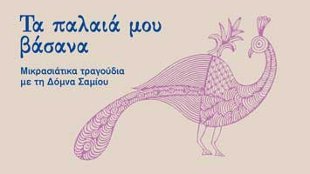
Song
On my way to the mountains of Prussa
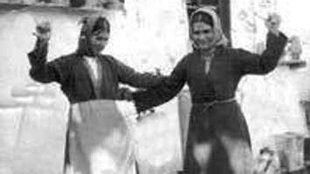
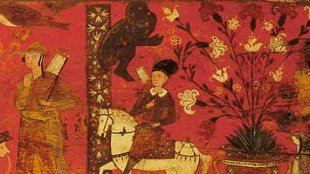
Song
Dawn Glowed in the East
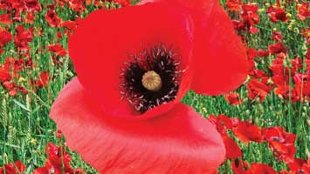
Song
It Is May Month
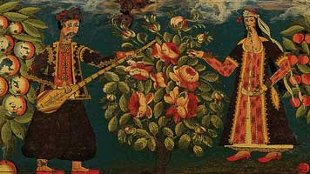
Song
Little Lemon Tree
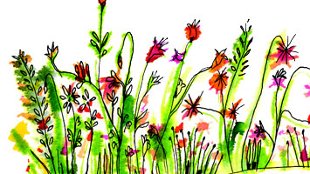
Song
May Is Come
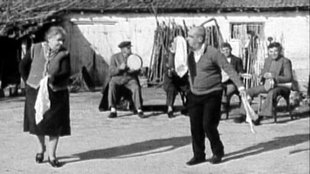
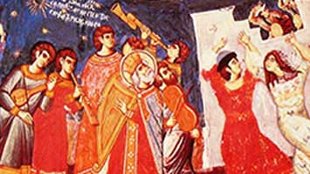
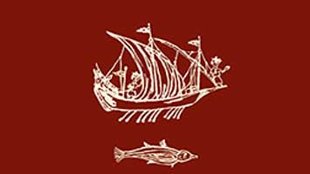
Song
My Love-Bird Far Away from Home


Song
O April, April, Cool and Fresh

Song
The May Month

Song
Virginada

Song
You Drive Me Mother out from Home

